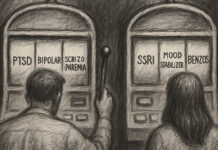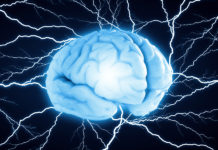Labeled, Medicated, Misdiagnosed — Until I Rewired My Own Brain
I’m not a doctor. I’m a patient. But I solved what six psychiatrists could not.
Science Under Pressure, Humanity at Stake: An Interview with John Ioannidis
The Stanford professor behind the most famous paper in modern medicine warns that much of today’s research is unreliable, yet insists the project is worth defending.
A Call for Retraction: How a Journal Condoned Psychedelic Therapy Abuse
The concealing of relevant data from a research project is a form of fraud and the grounds for retraction of the JHP study.
When Validation Becomes Avoidance: The Hidden Costs of Comfort in Modern Therapy
Each week, her therapist offered affirmations and reassurance. Her eating disorder remained comfortable and unchallenged.
The 110-Year “Schizophrenia Genetic Research” Train Wreck
The “genetics of schizophrenia” area of research is currently in disaster mode and awaits its endpoint.
No Subgroup of Patients for Whom Antidepressants Are Effective
A reanalysis of STAR*D finds no support for the theorized subgroup of patients who do well on antidepressants.
Confessions of an Ad Writer: How I Helped Turn Atypical Antipsychotics into a Billion-Dollar...
How we redefined schizophrenia, rewrote the safety narrative of antipsychotics, and helped drive one of the most successful (and concerning) pharmaceutical launches in history.
Confessions of an Advertising Writer: What I Learned From Your Stories—And Mine
Apologies won’t undo the harm. What I’ve learned might. The current system will not change unless we organize.
Therapy in the Age of Self Management and Public Abandonment: A Conversation with Psychological...
Talia Weiner discusses how conservative politics and market logic reshape mental health care.
Like a Refuge and Like a Prison
From Mad in Puerto Rico: Laura López-Aybar interviews Francisco about psychiatric hospitalization.
Locura en Argentina
Editor Alan Robinson aims to provide readers with a magazine that represents them and the “mad cultures” found in Argentina.
Researchers Criticize Putting Preschoolers on Stimulant Drugs
Against guideline recommendations, preschoolers were often prescribed stimulants without even having the chance to try family behavioral therapy.
Is Dialogue the Best Medicine? A Conversation With Jaakko Seikkula
Jaakko Seikkula joins us on the MIA podcast to discuss how Open Dialogue came to be, the research that shows its positive outcomes, how psychiatry has failed to learn from Open Dialogue practice and more.
Welcome to the Psychiatry Casino
Modern psychiatry is still, in many ways, closer to educated gambling than science. And patients deserve to know that.
Too Good to Be True: How TMS Damaged My Brain
TMS not only has not improved my mental health, but also has robbed me of some of the most important things in life. There has been little to no research on or awareness around the negative side effects that TMS can inflict. This must change.
Why I Kept Going Back: Breaking Free From Trauma Bonds
Breaking free from trauma bonds is a process of doubt, pain, and courage. It’s learning to trust yourself again after years of confusion.
How to be a Critical Psychologist Without Losing Your Soul: A Conversation With Zenobia...
On the Mad in America podcast, Zenobia Morrill, José Giovanni Luiggi-Hernández and Justin Karter join us to explore the need to raise awareness of psychological approaches that challenge mainstream perspectives.
Antidepressants in Pregnancy—Turning a Blind Eye, Again
You might think that telling women about the potential risks of taking antidepressants during pregnancy would be uncontroversial.
Beliefs that Create Madness
We know that it is not simply a chemical imbalance or a broken brain. We know how the context plays a large role.
A Place in the Forest: Mental Well-Being from a Wider Perspective
The whole social system as it is now is not designed with the purpose of well-being. Where has this gotten us?
Not Even the Unborn Are Safe from Psychiatric Harm
Medical organizations and the media dismiss the experts and the large body of research telling of fetal harm from exposure to SSRIs during pregnancy.
“I Made it Through the Horrors of Psychiatric Drug Withdrawal” A Conversation with Comedian...
Dex Carrington, AKA Jørgen Kjønø, is a Norwegian-American stand-up comedian and actor. He joins us on the Mad In America podcast to talk about his experience with Lyrica and Zyprexa, including a five-and-a-half-year taper after 10 years on the drugs.
Why Psychosis Is Not So Crazy: A Conversation with Stijn Vanheule
Vanheule urges clinicians to listen for the structure in psychotic thought. He offers clinical examples that reframe hallucinations as a form of creative response to unspeakable dilemmas.
Mad in Puerto Rico
Since Puerto Rico is, in essence, a colony of the United States, colonialism has a heavy impact on mental health and the healthcare system.
Sober Living: Why Less Clinical Sometimes Means More Recovery
Real independence is where most people stumble. Treatment can’t replicate what it’s like to live sober in the chaos of everyday life.
































